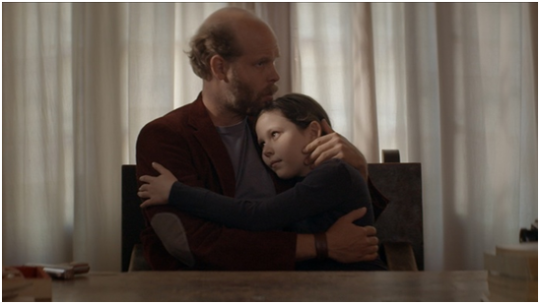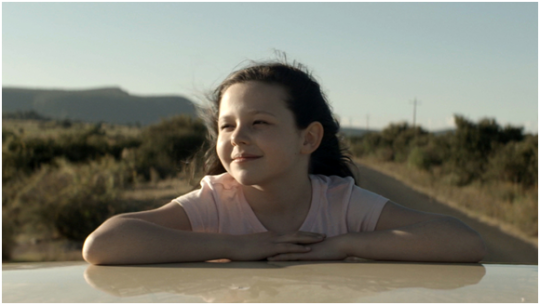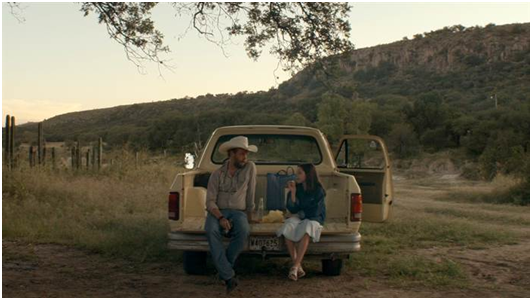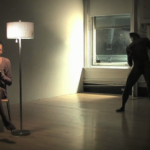INTERVIEW WITH NYFA ARTIST, ELISE DURANT
“That one nod that the actor, unaware, gives you that makes the scene”
Elise DuRant, experienced editor and first-time filmmaker joined us to
discuss her work Edén. This NYFA
fiscally sponsored project recently made its US premiere at the Atlanta Film
Festival and will be screened
at the upcoming Montclair Film Festival (MFF). After enjoying DuRant’s thoughtful
and forthcoming remarks about filmmaking, you can view her work Edén at
MFF on May 4th and 6th.
Screenings:
Monday, May 4, 7:00 PM, Clairidge Cinema 1
Wednesday, May 6, 9:15 PM, Clairidge Cinema 1
Address:
486 Bloomfield
Avenue
Montclair,
NJ 07042
NYFA: Congratulations
on the completion of your first feature film Edén and its excellent reception
on the festival circuit! While a lot of artists and filmmakers draw from
personal experience when making work, not everyone is as candid as you about
acknowledging such inspiration. What is it like to excavate your personal
story? Exhausting? Cleansing? What are some of the challenges you faced when
creating this semi-autobiographical work?
Elise DuRant: A few months
ago, I was at a film festival party on the beach, and a friend of mine, a
director, pulled me to the edge of the party and pointed into the
darkness. There, in the sand, was a
turtle that had come ashore to lay her eggs.
“We have to protect her,” he said. “Make sure some drunken idiot doesn’t
step on her.” As we stood there watching
her, he turned to me and said, “Why do you do it?” pointing back at the party.
I shared with
him that when Edén made its world premiere at the International Film
Festival Rotterdam; one of its first reviews was from a well-established film
industry publication and dismissed Edén for being a personal story. I felt very exposed and questioned whether or
not I was cut out to be a director. I
was afraid that the review could have an effect on how Edén would be
received in the future and end the possibility for me to make another film.
“I don’t do
this for them,” I told my friend,
referring to the party. “I do it because
I saw incredible films growing up that spoke to me, films where the directors
looked at their lives and the world around them and tried to make sense of it,
by exploring themes and ideas that interested them. That’s why I wanted to make films. And that’s where Edén comes from.”
Since
Rotterdam, Edén has traveled the world and found its people. It’s been warmly received in Sweden, South
Africa, London, Argentina and Mexico. It
just made its US premiere at the Atlanta Film Festival where it was presented
in a beautiful screening room at the High Museum of Art. People are moved by it. Edén is. The work is there. It exists.
It stands on its own.
NYFA: What resources
did you rely upon when navigating making your first film? How does your
extensive work experience as a film editor influence your transition to writer
and director?
ED: My education in film was in the editing room. I learned how dialogue was constructed by
first reading the script and then listening to scenes over and over again as we
worked on the film. I learned about
looking for that one gesture, that one nod that the actor, unaware, gives you
that makes the scene. I learned about
rhythm and pacing, where the action begins and where it ends in a scene. I took this with me to write and direct.

NYFA: In preparation
and research for your role as director, what steps did you take to prepare
yourself to work with actors?
ED: I have to say
it was very organic. It started off with
having conversations with the actors.
With Will
Oldham, who plays the father, I shared as much information and photographs with
him as possible: on Mexico, Mexican art and artifacts, the remoter places I
traveled to with my father as a child. Will was amazing. I am so grateful to him for taking on that
role in the way that he did, for coming down to Mexico on this adventure, for
being so generous and trusting, and genuinely respectful of me as a director.
Will,
Paula—who plays 9-year-old Alma—and I played for days before filming so that Will
and Paula would become comfortable with each other. We went swimming, played badminton, cuddled
up and read stories together. And, then
we’d go over the scenes in this more relaxed playful way. Luckily, they got along well; there was a
bond that grew between them off camera.
NYFA: Edén’s setting
traverses Mexico and America and its narrative encompasses transience, memory
and intimacy. How does Edén address the
social and political climate between America and Mexico today? What has the
film’s reception been like on the international scale? Who is your ideal
audience?
ED: I don’t know
that Edén openly addresses the social and political climate today
between the US and Mexico, but it most definitely addresses the underlying
cultural tensions that can come up when these two cultures interact. Of all the
places Edén has traveled to, it really found its home with audiences in
Argentina and South Africa. I wonder if
this may be because the themes that Edén addresses particularly resonates
those audiences—transience, memory, intimacy, digging into personal and
cultural identity.
I think my
ideal audience is one like the audience that attends the Mar del Plata Film
Festival in Argentina. It’s not an
industry festival and does not cater so much to film industry professionals but
rather to bringing films to film goers.
People will travel from all over Argentina to spend a week in Mar del
Plata to watch films. They’ll line up in
the morning and tickets will sell out by mid-morning, and they will go from
film to film during the day and then discuss the films they saw at dinner. This isn’t something accessible only to the
privileged. Film is culturally relevant
in Argentina. They really care about
cinema as an expression of human experience, like reading a good book.
One evening I
was having dinner at a little place by the hotel and a woman turned to me and
said, “You’re not the director of Edén, are you?!” She stood up and opened her arms, and said.
“Come here, I must hug you.” And then
she went into how she was just sharing with the people at her table how she had
seen Edén a few days back and it had stayed her. “I appreciate the way you face into
relationships.The use of silence. Very strong.
Congratulations.” … I guess you
could say that was my rock star moment.
NYFA: You received
NYFA Fiscal Sponsorship and an individual artist grant from the New York State
Council on the Arts (NYSCA) for Edén. Are there opportunities or benefits that
fiscal sponsorship helped you achieve that might not otherwise have been
possible?
ED: It would have
been very difficult to make Edén otherwise. The way Edén was made, with grants and
contributions through New York Foundation for the Arts, gave me the freedom to
make the film I wanted to make, in the way I wanted to make it.

NYFA: While giving
the keynote address at SXSW, filmmaker Mark Duplass recently stated, “the
cavalry is not coming “and urged filmmakers to “go and make this movie on your
own.” What advice do would you give to aspiring filmmakers?
ED: I love
that! “The cavalry is not coming.”
I have learned
that by making Edén in this way—through contributions through NYFA,
grants, through all the people that volunteered their time, opened up their
homes and businesses for us to film in—you create a community. As a first-time filmmaker, you think that
there is a community on the other side of the mountain that will embrace you
once you’ve made your film. What you
learn is that you create the community in making the film.
Since
completing Edén, I’ve been invited to give filmmaking workshops
throughout Mexico. In one week, we make
a short film that the students can take home and show as their work. I try to leave them with the idea that they
can make another film on their own any time they want. Yes, I’m bringing nice equipment, but, I let
them know, they can make a film with their phone camera. I try to instill the idea that they have
their own resources to draw from. I would
very much like to see a change in the way films are made, that it may become
less centralized, where filmmakers may grow and speak from where they come
from.
NYFA is the proud Fiscal Sponsor for
Edén. To find out more about Elise’s project, click here.
– Interview conducted by Madeleine Cutrona, Fiscal Sponsorship Intern
Images: Elise DuRant (Sponsored Project), stills from the film Edén, 2014.





